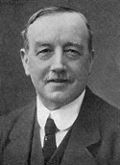This article needs additional citations for verification .(July 2016) |
27 October 1931 | ||||||||||||||||||||||||||||||||||||||||||||||||||||||||||||||||||||||||||
All 74 Scottish seats to the House of Commons | ||||||||||||||||||||||||||||||||||||||||||||||||||||||||||||||||||||||||||
|---|---|---|---|---|---|---|---|---|---|---|---|---|---|---|---|---|---|---|---|---|---|---|---|---|---|---|---|---|---|---|---|---|---|---|---|---|---|---|---|---|---|---|---|---|---|---|---|---|---|---|---|---|---|---|---|---|---|---|---|---|---|---|---|---|---|---|---|---|---|---|---|---|---|---|
| ||||||||||||||||||||||||||||||||||||||||||||||||||||||||||||||||||||||||||
 Results of the 1931 election in Scotland Unionist Liberal National Liberal Labour National Labour | ||||||||||||||||||||||||||||||||||||||||||||||||||||||||||||||||||||||||||
A general election was held in the United Kingdom on Tuesday, 27 October 1931. [1] Scotland was allocated 74 seats in the House of Commons, of which 71 were territorial seats comprising 32 burgh constituencies and 38 county constituencies. [c] There was also one university constituency, which elected an additional 3 members using the Single Transferable Vote (STV) method. [2] As voters in university constituencies voted under a different system, and in addition to their territorial vote, the results are compiled separately.
Contents
- Results
- Seats summary
- Burgh & County constituencies
- University constituencies
- Votes summary
- Notes
- References
The election saw massive gains for the Unionists across the country, with the party winning nearly 70% of all Scottish seats. The parties forming the National Government together won 64% of the vote, and 86% of the seats. In contrast the Labour Party, which had been the largest party in Scotland following the 1929 general election (where it had won 42% of the Scottish vote), was relegated into fourth place within just two years.
Following the election, with Labour appearing to teeter on the edge of the electoral abyss in Scotland, the Independent Labour Party increasingly moved apart from Labour, ultimately dissociating from the party in March 1932. The ILP had dominated the Labour movement in Scotland since 1918, dominating community based activism, and essentially forming the Labour Party in Scotland. This had ultimately served to undermine the organisational growth of the Labour Party in Scotland. [3]



